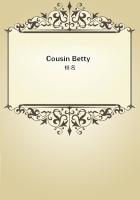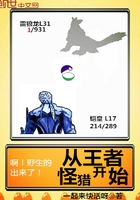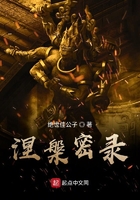THE ANGEL IN ISRAEL'S HOUSE
When Israel had been some twenty years at Tetuan, Naomi being then fourteen years of age, Ben Aboo, the Basha, married a Christian wife.
The woman's name was Katrina.She was a Spaniard by birth, and had first come to Morocco at the tail of a Spanish embassy, which travelled through Tetuan from Ceuta to the Sultan at Fez.
What her belongings were, and what her antecedents had been, no one appeared to know, nor did Ben Aboo himself seem to care.
She answered all his present needs in her own person, which was ample in its proportions and abundant in its charms.
In marrying Ben Aboo, the wily Katrina imposed two conditions.
The first was, that he should put away the full Mohammedan complement of four Moorish wives, whom he had married already as well as the many concubines that he had annexed in his way through life, and now kept lodged in one unquiet nest in the women's hidden quarter of the Palace.The second condition was, that she herself should never be banished to such seclusion, but, like the wife of any European governor, should openly share the state of her husband.
Ben Aboo was in no mood to stand on the rights of a strict Mohammedan, and he accepted both of her conditions.The first he never meant to abide by, but the second she took care he should observe, and, as a prelude to that public life which she intended to live by his side, she insisted on a public marriage.
They were married according to the rites of the Catholic Church by a Franciscan friar settled at Tangier, and the marriage festival lasted six days.Great was the display, and lavish the outlay.
Every morning the cannon of the fort fired a round of shot from the hill, every evening the tribesmen from the mountains went through their feats of powder-play in the market-place, and every night a body of Aissawa from Mequinez yelled and shrieked in the enclosure called the M'salla, near the Bab er-Remoosh.Feasts were spread in the Kasbah, and relays of guests from among the chief men of the town were invited daily to partake of them.
No man dared to refuse his invitation, or to neglect the tribute of a present, though the Moors well knew that they were lending the light of their countenance to a brazen outrage on their faith, and though it galled the hearts of the Jews to make merry at the marriage of a Christian and a Muslim--no man except Israel, and he excused himself with what grace he could, being in no mood for rejoicing, but sick with sorrow of the heart.
The Spanish woman was not to be gainsaid.She had taken her measure of the man, and had resolved that a servant so powerful as Israel should pay her court and tribute before all.Therefore she caused him to be invited again; but Israel had taken his measure of the woman, and with some lack of courtesy he excused himself afresh.
Katrina was not yet done.She was a creature of resource, and having heard of Naomi with strange stories concerning her, she devised a children's feast for the last day of the marriage festival, and caused Ben Aboo to write to Israel a formal letter, beginning "To our well-beloved the excellent Israel ben Oliel, Praise to the one God," and setting forth that on the morrow, when the "Sun of the world" should "place his foot in the stirrup of speed," and gallop "from the kingdom of shades," the Governor would "hold a gathering of delight" for all the children of Tetuan and he, Israel, was besought to "lighten it with the rays of his face, rivalled only by the sun," and to bring with him his little daughter Naomi, whose arrival "similar to a spring breeze," should "dissipate the dark night of solitude and isolation." This despatch written in the common cant of the people, concluded with quotations from the Prophet on brotherly love and a significant and more sincere assurance that the Basha would not admit of excuses "of the thickness of a hair."When Israel received the missive, his anger was hot and furious.
He leapt to the conclusion that, in demanding the presence of Naomi, the Spanish woman, who must know of the child's condition desired only to make a show of it.But, after a fume, he put that thought from him as uncharitable and unwarranted, and resolved to obey the summons.
And, indeed, if he had felt any further diffidence, the sight of Naomi's own eagerness must have driven it away.The little maid seemed to know that something unusual was going on.Troops of poor villagers from every miserable quarter of the bashalic came into the town each day, beating drums, firing long guns, driving their presents before them--bullocks, cows, and sheep--and trying to make believe that they rejoiced and were glad.Naomi appeared to be conscious of many tents pitched in the marketplace, of denser crowds in the streets, and of much bustle everywhere.
Also she seemed to catch the contagion of little Ali's excitement.
The children of all the schools of the town, both Jewish and Moorish, had been summoned through their Talebs to the festival; there was to be dancing and singing and playing on musical instruments and Ali himself, who had lately practised the kanoon--the lute, the harp--under his teacher, was to show his skill before the Governor.
Therefore, great was the little black man's excitement, and, in the fever of it, he would talk to every one of the event forthcoming--to Fatima, to Habeebah, and often to Naomi also, until the memory of her infirmity would come to him, or perhaps the derisive laugh of his schoolfellows would stop him, and then, thinking they were laughing at the girl, he would fall on them like a fury, and they would scamper away.
When the great day came, Ali went off to the Kasbah with his school and Taleb, in the long procession of many schools and many Talebs.
Every child carried a present for the rich Basha; now a boy with a goat, then a girl with a lamb, again a poor tattered mite with a hen, all cuddling them close like pets they must part with, yet all looking radiantly happy in their sweet innocency, which had no alloy of pain from the tree of the knowledge of good and evil.















